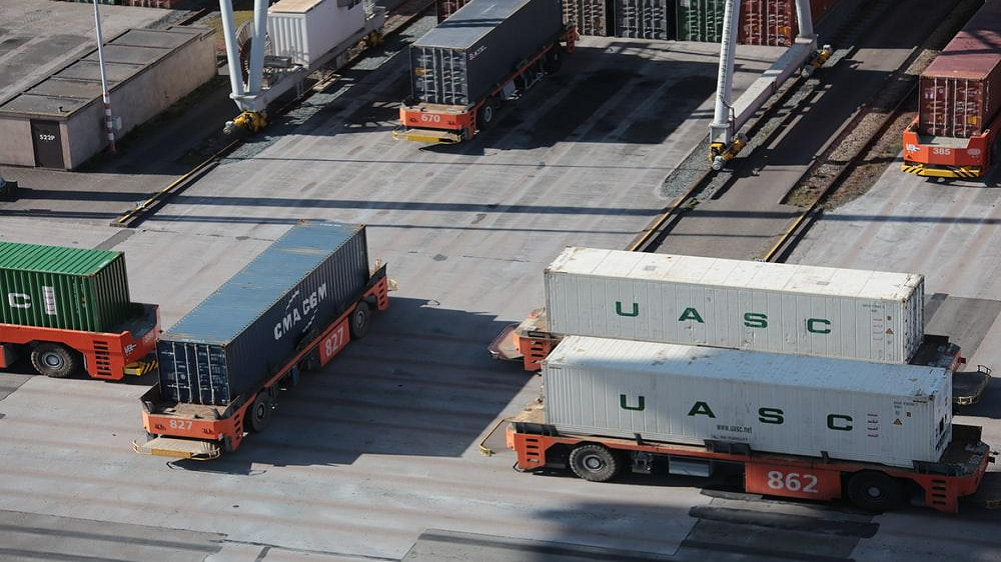
In today’s world of increased globalization, cross-border trade needs to be quicker and more efficient to cater to growing consumer demand. It raises the question of how companies can ensure that their products move smoothly through the supply chain when global cargo volumes keep increasing while logistics infrastructure is in total collapse.
The answer lies in a data-driven approach. If data-driven logistics is implemented properly, it can improve cross-border trade and positively impact customer satisfaction.

What is Data-Driven Logistics?
As the name implies, data-driven logistics revolves around using information from relevant data sources for all aspects of logistics operations. When it comes to logistics, data varies significantly.
It could be just the basic weather information or as complex as customer shopping patterns. Irrespective of which data is at play, collecting fancy numerical data is one half of the puzzle; acting on that data to improve delivery outcomes and ultimately enhance customer satisfaction makes the whole puzzle complete.
Data-driven logistics has become crucial for stakeholders, especially those in eCommerce in these uncertain times (political and post-lockdown era), due to continuous supply chain disruptions. Businesses that realign their operations to take advantage of data-driven logistics will ultimately have an advantage over their competitors who fail to do so.
Data-driven logistics eliminates the habit of guesswork and intuitive actions during logistics operations because data does not pander to emotional sentiments. Due to the positive impact technology in logistics and supply chain has on ROI, more logistics service providers are quickly adopting these solutions into their operations, especially in the following areas:
1. Fulfillment Centre: Stocking products temporarily before they get to the end consumers is a critical component of logistics, and inefficiencies in this part could lead to disruptions in the entire supply chain. Bottlenecks in storage space and other warehousing aspects can be tweaked and optimized if businesses act on data from order patterns and products flow.
2. Inventory Management: The same applies to product inventory. Data-driven logistics can act on real-time information concerning consumer trends and shopping behavior to better suggest practical ways to manage inventories so that products get to consumers at the right time.
3. Transport: Information based on data can help navigate some of the issues facing product deliveries that result in shipping delays by predicting and forecasting these events before they even happen or providing alternatives that have a less negative impact on consumer satisfaction.
Data-driven logistics can become a crucial differentiator among cross-border retailers, especially when the intricacies of data collection and its implementation are strictly observed. The benefits of data-driven logistics are not limited to logistics service providers alone, every stakeholder from the manufacturer down to the end-consumer stand gain from data-backed decisions. Here are some of the ways:
1. Understanding Customer Behavior
Consumer shopping patterns are never static and are constantly changing. To keep the supply chain well-greased and continuously moving, stakeholders must predict changes in consumer behavior as they happen. Data-driven logistics makes this possible and enables participants to develop insights that facilitate fulfillment centre and inventory management.
2. Estimating Customer Value
Data, when well-utilized, allows businesses to gain more information about consumers and the value they bring to your brand. Data-driven logistics enables businesses to cater specifically to customers who offer more value; through personalized communications, priority delivery, and so on.
3. To Optimize Operating Conditions
Working conditions are never the same, and several variables impact these scenarios in logistics. For example, data helps businesses keep track of these conditions and, when acted on, could be optimized for the best possible outcomes.
4. Help Build Trust and Transparency
Data-driven logistics help predict and foresee changes in business operating conditions. When communicated and acted on responsibly, these changes show a degree of integrity that builds trust between all parties involved.
5. Save Operating Costs
Data-driven logistics enables logistics stakeholders to predict and make decisions accordingly. These decisions could help forestall the breakdown of equipment and machinery or navigate weather disruptions. These ultimately result in significant savings in warehousing, inventory, and even transportation costs.
6. Enable Stakeholders to Make Rational and Quicker Decisions
Data serves as the backbone for informed decision-making. When correctly put in place, these decisions can be taken as fast as possible to circumvent unforeseen obstacles.
As globalization continues to make the world smaller, cross-border logistics have the mandate of covering more distance to cater to the ever-growing consumer needs because it fosters loyalty. One of the most significant trends in logistics is the advancement of data-driven analytics and how it helps solve inherent problems associated with the present state of global logistics.
By deploying real-time data points along with recorded data, cross-border logistics companies are able to convert traditional practices into an efficient environment that advances eCommerce and leaves end customers satisfied.
eCommerce brands must therefore learn the data-driven philosophy when choosing a logistics partner, and YunExpress, which has a notable reputation internationally for cross-border logistics, is that ideal partner.
We place cookies in order to make sure our website works properly and to improve your browsing experience, to streamline and personalize our marketing content and to show you personalized advertisements (including on third party websites). We sometimes share cookie data with our partners for these purposes. Our cookies remember your settings and the data you fill out on forms on our website and analyse traffic to our website. Our cookies also register how you found us and collect information about your browsing habits. You can read more about our use of in our Cookie Notice.